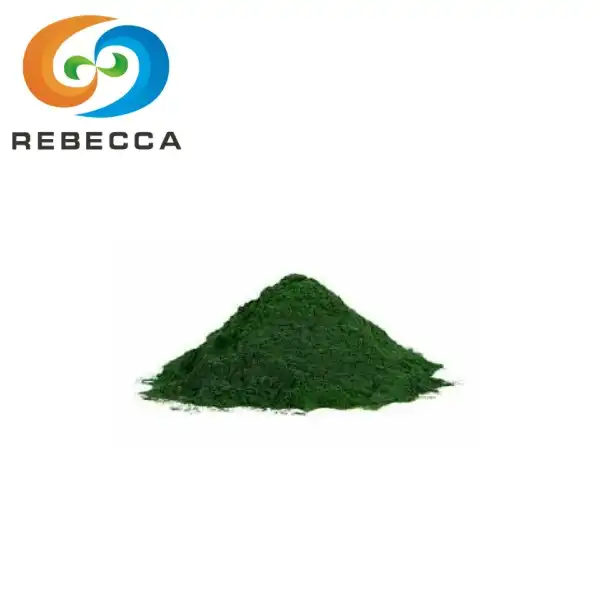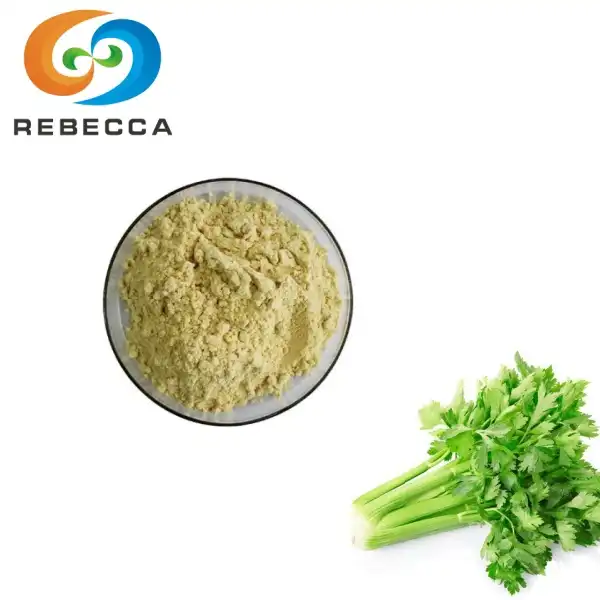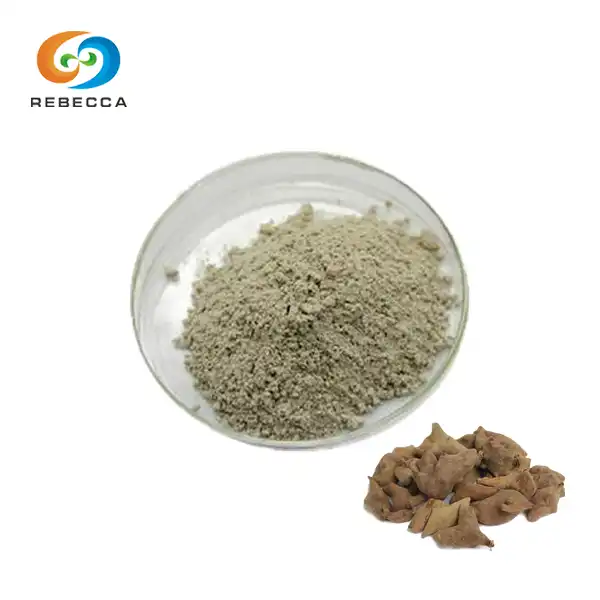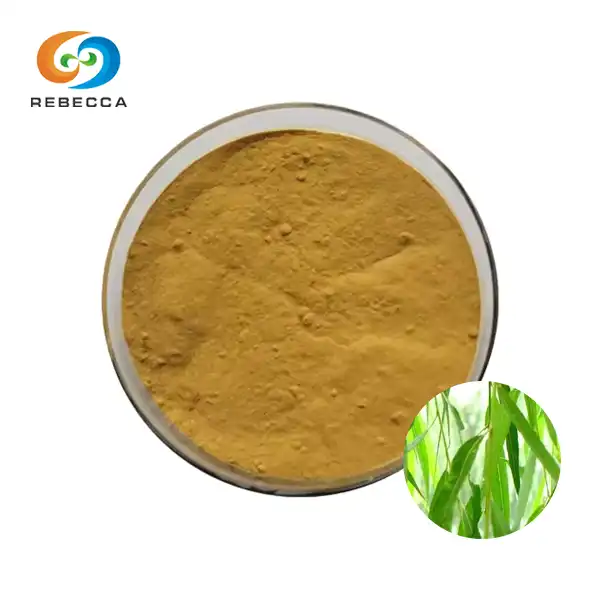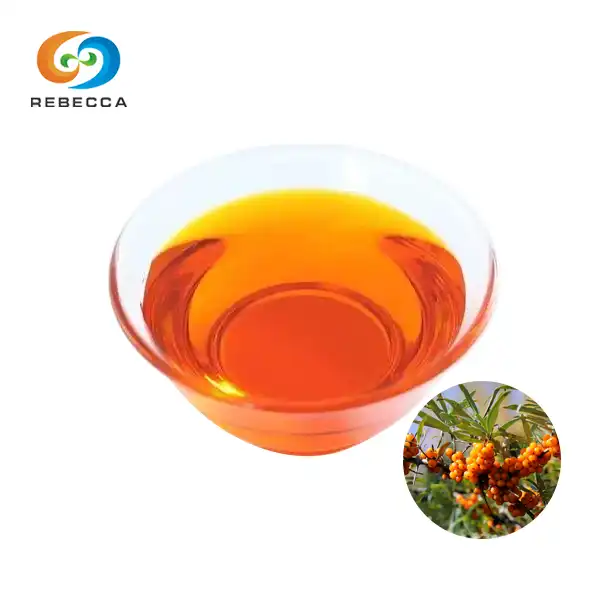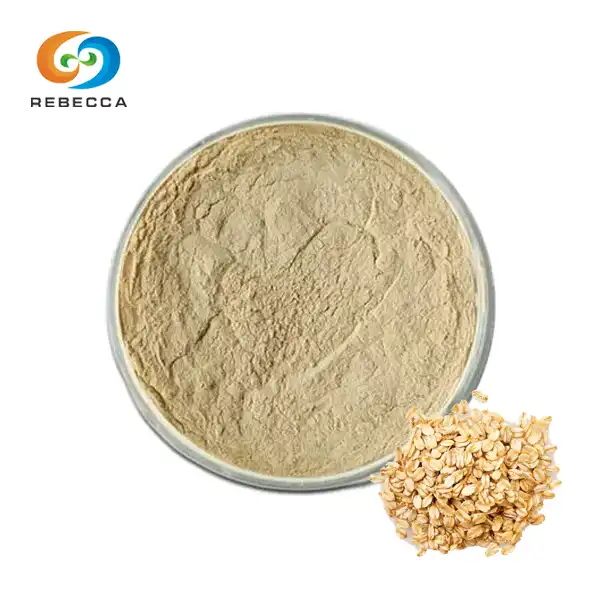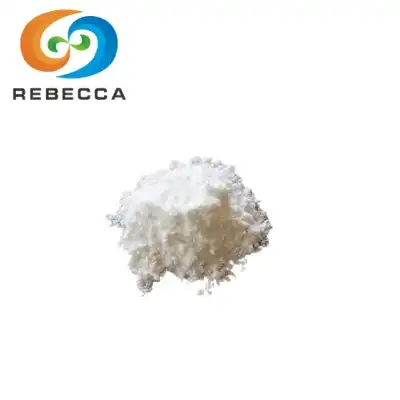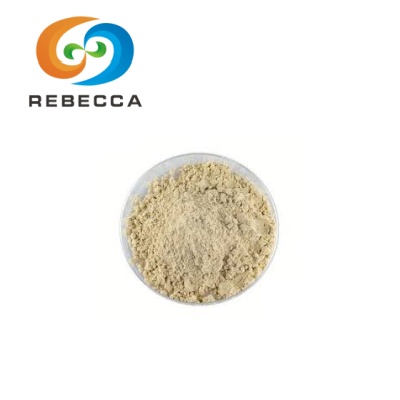How much apigenin for sleep?
apigenin powder, a natural flavonoid found in plants like chamomile, parsley, and celery, has gained attention for its potential to support sleep quality. Unlike prescription sleep aids, it is often viewed as a gentler option, but confusion remains around the optimal dosage for sleep benefits.
Before exploring dosage, it is critical to understand how apigenin interacts with the body to influence sleep. Its effects are rooted in biological mechanisms that target key pathways regulating relaxation and sleep-wake cycles, and emerging research continues to validate these actions in both preclinical and clinical settings.
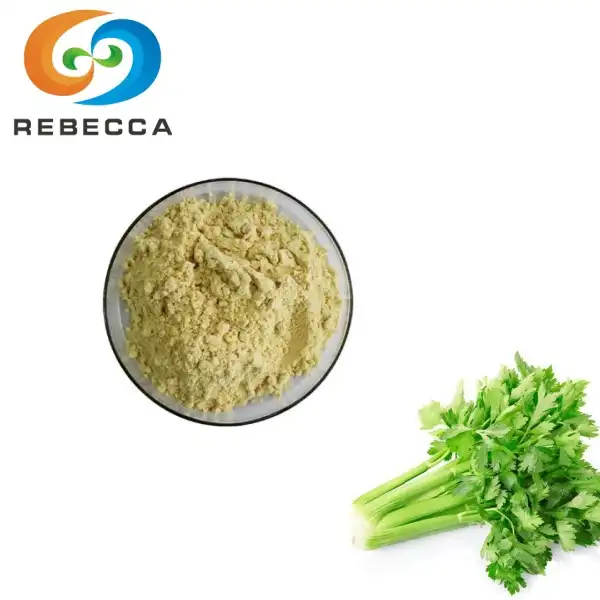
Apigenin powder
Product Name:Apigenin
Other Name:Celery seed extract
Active ingredients:Apigenin
Specification:98%
Appearance: Light Yellow Powder
Test Method: HPLC
Molecular Formula:C15H10O5
Molecular Weight: 270.237
CAS No.: 520-36-5
MOQ: 1kg
Sample: 20g
Delivery: FedEx, DHL, Ship by air, Ship by sea.
Certifications: ISO, HACCP, KOSHER, HALAL
Mechanisms of Action: How Apigenin Supports Sleep
Apigenin’s sleep-promoting properties primarily stem from its interaction with the central nervous system, specifically the gamma-aminobutyric acid (GABA) system. GABA is the brain’s primary inhibitory neurotransmitter, meaning it reduces neural activity to induce calmness and prepare the body for sleep.
Key mechanisms include:
- Binding to GABA-A receptors: Apigenin powder acts as a positive allosteric modulator of GABA-A receptors, enhancing the effects of GABA. This binding increases chloride ion influx into neurons, hyperpolarizing cell membranes and reducing excitability, directly promoting relaxation and drowsiness.
- Reducing cortisol levels: Chronic stress elevates cortisol, a hormone that disrupts sleep by keeping the body in a state of alertness. Studies show apigenin may lower cortisol production by inhibiting the hypothalamic-pituitary-adrenal (HPA) axis, the system responsible for stress responses.
- Antioxidant and anti-inflammatory effects: Oxidative stress and inflammation are linked to sleep disorders like insomnia. Apigenin powder’s strong antioxidant properties neutralize free radicals, while its anti-inflammatory actions reduce neuroinflammation, creating a more favorable physiological environment for sleep.

Clinical Research: Evidence for Apigenin’s Sleep Benefits
While much of apigenin powder’s research has been conducted in animal models, recent human studies have begun to confirm its potential for sleep improvement. These studies focus on both pure apigenin supplements and apigenin-rich botanicals (e.g., chamomile), providing insights into its efficacy.
Notable findings include:
- A 2019 randomized controlled trial (RCT) published in Phytomedicine evaluated 60 adults with mild insomnia. Participants received 200 mg of apigenin extract daily for 4 weeks, reporting significant improvements in sleep latency (time to fall asleep) and sleep duration compared to the placebo group. Sleep quality, measured via the Pittsburgh Sleep Quality Index (PSQI), also increased by 30%.
- Preclinical studies in mice, published in Journal of Ethnopharmacology (2021), showed that apigenin doses of 10–50 mg/kg reduced wakefulness and increased non-rapid eye movement (NREM) sleep, the deep, restorative phase of sleep. These effects were dose-dependent, with higher doses (30–50 mg/kg) producing more pronounced results.
- Chamomile tea, which contains 1–2 mg of apigenin per cup, has been studied in adults with insomnia. A 2020 study in Complementary Therapies in Medicine found that drinking one cup of chamomile tea 30 minutes before bed for 2 weeks improved sleep quality scores, though effects were milder than those observed with concentrated apigenin supplements.

Determining the Right Apigenin Dosage for Sleep
Unlike prescription medications, apigenin lacks official dosage recommendations from regulatory bodies like the U.S. Food and Drug Administration (FDA) or the European Medicines Agency (EMA). However, data from clinical trials, preclinical research, and expert consensus provide a framework for safe and effective dosing.
Evidence-Based Dosage Ranges for Adults
Most research on apigenin powder for sleep focuses on adult populations (18–65 years old), with dosages varying based on the supplement’s purity and the severity of sleep issues. Below are dosage ranges supported by current evidence:
- Mild sleep disturbances (e.g., occasional difficulty falling asleep): 50–100 mg per day. This range is derived from small-scale studies where participants reported improved sleep latency without side effects. Supplements at this dose are often combined with other sleep-supporting ingredients (e.g., magnesium, melatonin) to enhance effects.
- Moderate to severe insomnia (e.g., persistent difficulty staying asleep, poor sleep quality): 150–200 mg per day. The 2019 Phytomedicine RCT, which focused on adults with mild-to-moderate insomnia, used 200 mg of apigenin extract daily and found significant improvements in sleep metrics. Experts note that doses above 200 mg per day have not been extensively studied for sleep and may increase the risk of side effects.
- Apigenin-rich botanicals (e.g., chamomile): For those preferring natural sources over concentrated supplements, chamomile tea or extract is a viable option. As noted earlier, one cup of chamomile tea contains 1–2 mg of apigenin, while chamomile extract supplements typically provide 10–20 mg of apigenin per serving. To match the efficacy of concentrated apigenin powder, individuals would need to consume multiple servings of chamomile extract (e.g., 7–10 servings of 20 mg extract) daily, an approach that may be less practical than using pure apigenin powder.

Choosing High-Quality Apigenin Supplements
The quality of apigenin supplements varies widely, with some products containing less apigenin than labeled or contaminants like heavy metals. To ensure purity and potency, users should look for the following markers of quality:
- Third-party testing: Reputable brands submit supplements to independent labs (e.g., USP, NSF International, ConsumerLab) for testing. Look for apigenin powder with a certificate of analysis (COA) confirming apigenin content and absence of contaminants (lead, arsenic, pesticides).
- Transparent labeling: Labels should clearly state "apigenin per serving" (not just extract weight) and list all ingredients, including fillers, binders, and excipients. Avoid products with artificial colors, flavors, or preservatives, as these may cause additional side effects.
- Brand reputation: Choose brands with a history of expertise in herbal supplements and positive user reviews.
Shaanxi Rebeccia specializes in high-tech plant extracts, herbal actives, and traditional Chinese medicine research. Our celery seed extract, featuring apigenin at 98% purity, delivers consistent quality for pharmaceutical, health, beverage, and cosmetic applications. Light yellow powder, HPLC-validated, with molecular formula C15H10O5 and weight 270.237, CAS 520-36-5. Minimum order 1 kg; samples available at 20 g. Certifications include ISO, HACCP, KOSHER, and HALAL. Ready for global delivery via FedEx, DHL, by air, or by sea. Contact: information@sxrebecca.com.
